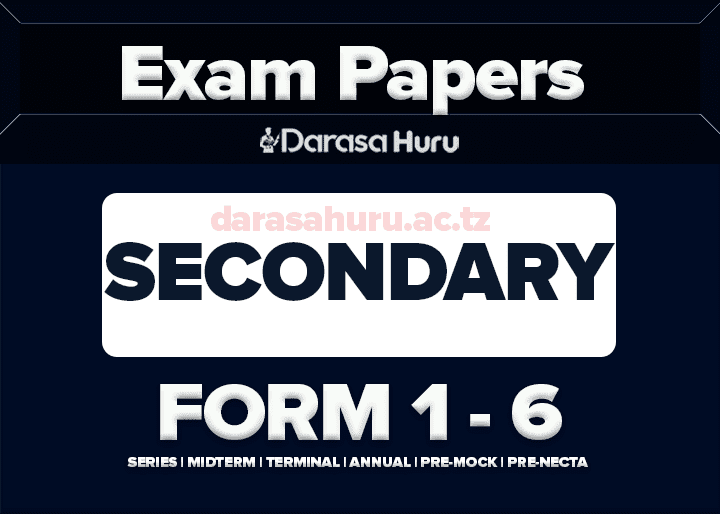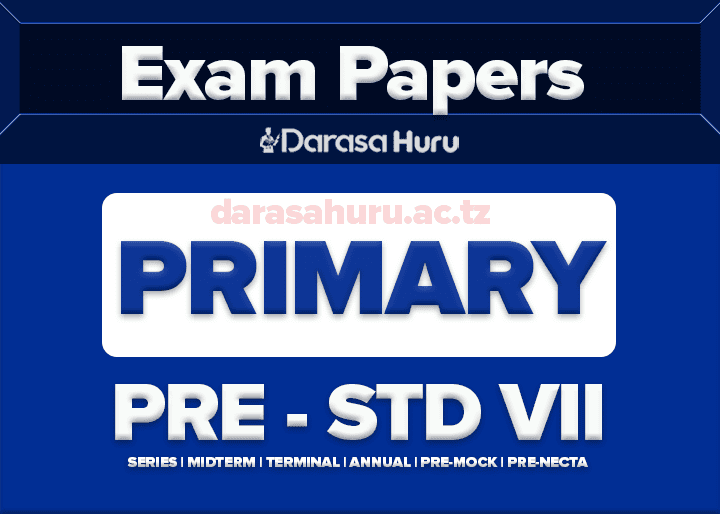Examinations For Secondary Schools Form 1 – 6 Free Download
Examinations Secondary Schools Past Papers Free Download Form I – VI, Examinations at Secondary Level: Form One Exams, form two exams, form three exams, form four exams, form five exams, form six exams. Midterm examinations form 1 – 6, terminal examinations form 1 – 6, annual examinations form 1 – 6, mock exams form two, mock exams form four, mock exams form six, prenational exams form two, pre-national exams form four, pre-national exams form six, Joint Exams Form 1 – 6.
An examination, often abbreviated as “exam,” is a formal test or assessment used to evaluate a person’s knowledge, skills, or abilities in a particular subject or field.
Examinations are commonly used in educational settings to assess students’ understanding of the material they’ve learned. However, exams can also be used in professional and medical contexts.
There are different types of examinations, such as:
1. Written exams
These involve answering questions in written form, such as multiple-choice questions, essays, or short-answer questions.
2. Oral exams
In these, the candidate answers questions orally, often in front of an examiner or panel.
3. Practical exams
These require the candidate to demonstrate practical skills, such as performing tasks or using tools in real-world scenarios.
4. Online exams
These are taken on a computer or other digital devices, often under timed conditions.
Download Examinations For Secondary Schools Form 1 – 6 Free Download
Form One Examinations Past Papers
Form Two Examinations Past Papers
Form Three Examinations Past Papers
Form Four Examinations Past Papers
Form Five Examinations Past Papers
Form Six Examinations Past Papers
NECTA EXAMS PAST PAPERS
HOME PACKAGES
Review and Revision Exercises
IMPORTANCE OF EXAMINATIONS
Exams are important for several reasons, particularly in educational and professional contexts. Here are some key reasons why exams are considered valuable:
1. Assessment of Knowledge and Skills
2. Standardized Evaluation
3. Encouragement for Studying
4. Development of Critical Thinking
5. Preparation for Future Challenges
6. Qualification and Certification
7. Motivation and Goal-Setting
8. Feedback for Improvement
9. Fair and Transparent Decision-Making
10. Identifying Potential











